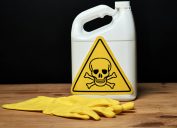7 Filters in Your House You're Probably Forgetting to Clean, Experts Say
Cut down on your cleaning time by focusing on filters.
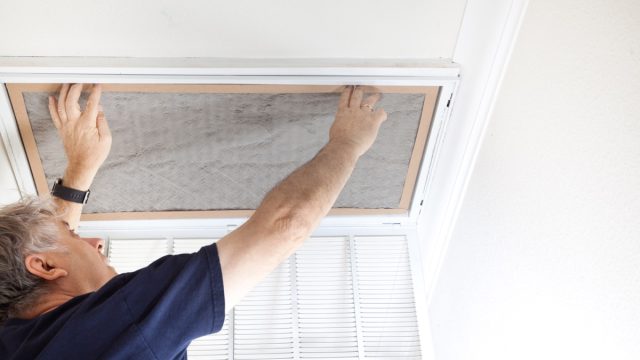
Americans spend the equivalent of nearly one full work day—an average of six to seven hours—cleaning their homes each week. If you'd like to cut down on your time spent cleaning, it may be time to scrub smarter—not harder. By regularly cleaning the many filters in your home—each essentially tasked with cleaning on your behalf—you can ensure that your various systems and appliances will work with optimal efficiency.
This adds up to cleaner air, cleaner laundry, and cleaner rugs after vacuuming—all of which will save you time and effort in the long run. Read on to learn which filters in your home you're probably forgetting to clean, and to hear expert tips on how to do it right.
READ THIS NEXT: 24 Small Ways You're Making Your Home More Dangerous.
1
HVAC filters
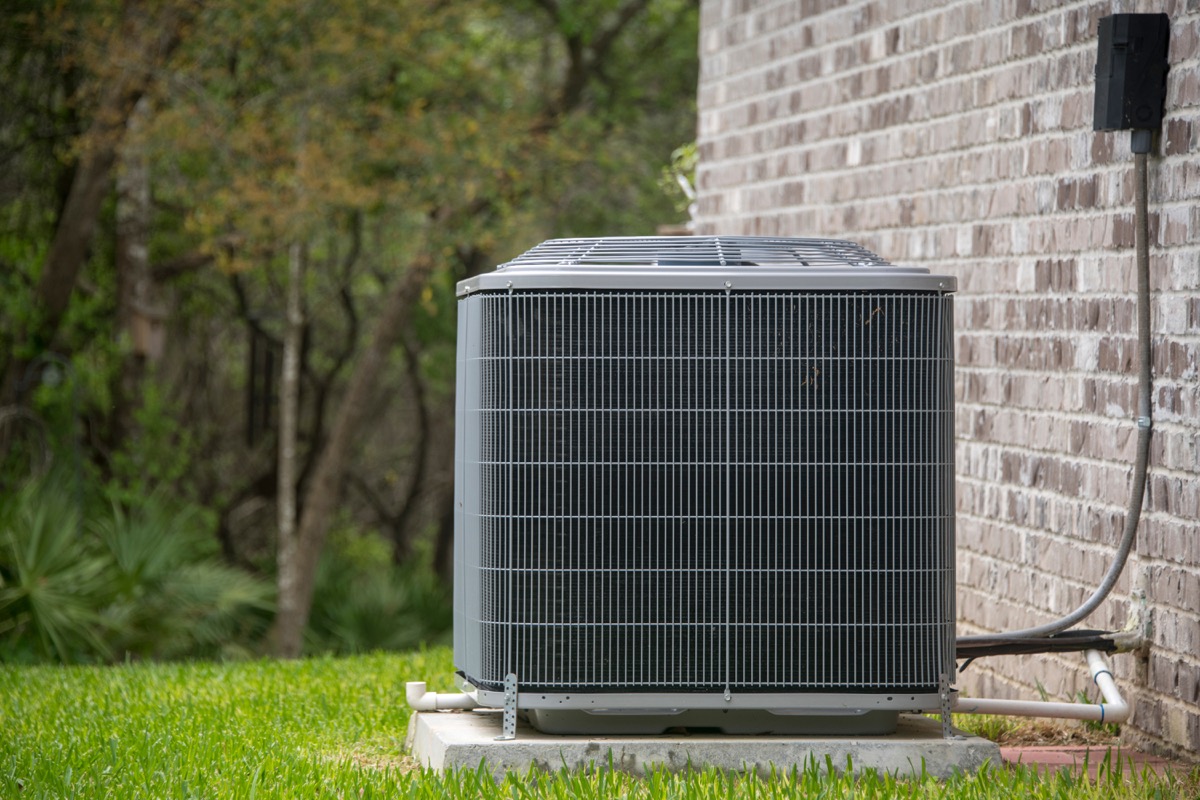
One of the most important filters you're probably forgetting to clean is your HVAC filter—short for Heating, Ventilation, and Air Conditioning.
These filters play a crucial role in maintaining good indoor air quality, says Karina Toner, the operations manager at Spekless Cleaning. And failing to clean your HVAC filter can cause dust and debris to accumulate, reducing airflow throughout your home and interfering with the unit's efficiency.
"A dirty filter can lead to poor indoor air quality, exacerbating respiratory issues and allergies. Additionally, an overburdened HVAC system may experience strain and damage, potentially requiring costly repairs or even premature replacement," explains Antoni Singger, a tech expert and the founder of Breezer Freezer.
Both experts agree that disposable filters should usually be replaced or cleaned every one to three months. To clean the filter, locate the filter compartment, remove the filter, and gently vacuum or wash it with mild detergent and water, says Singger. "Let it dry completely before reinstalling it," he adds.
2
Fridge water filters
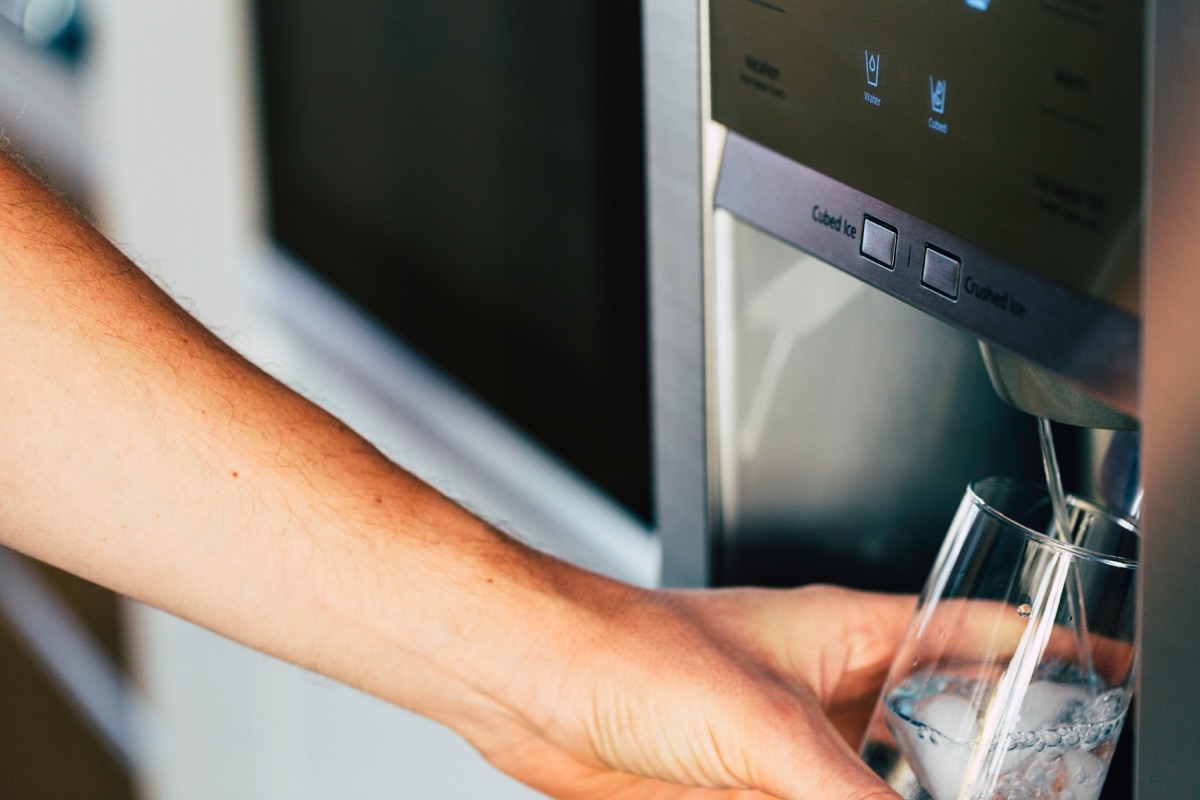
Another filter you should clean regularly is the one in your refrigerator's water dispenser.
"As a general rule, most fridge water filters need to be cleaned every week or two and replaced every six months, but this will depend on the specific model and design," explains Mathew Morris, the founder and owner of Go Cleaners London.
"However, if you notice a decrease in water flow or quality, or if you experience a change in taste or odor, you may need to replace it or clean it more frequently," he adds.
To prevent any leaks as you remove the filter, you'll first need to turn off your water supply. Next, Morris recommends rinsing the filter under warm running water to remove any debris or sediment-like limescale, then using an old toothbrush, soft scrubbing brush, or sponge to remove any stubborn stains. "Just make sure to rinse it thoroughly to prevent your next drink tasting like soap!" he says.
If it's been a while since you last cleaned your fridge water filter, you may want to opt for an even deeper clean. For this, Morris recommends soaking the filter in a mixture of three parts water to one part vinegar for 30 minutes, then rinsing it thoroughly and letting it dry completely before reinserting it into the fridge.
READ THIS NEXT: 9 Cleaning Habits That Attract Spiders.
3
Vacuum cleaner filters
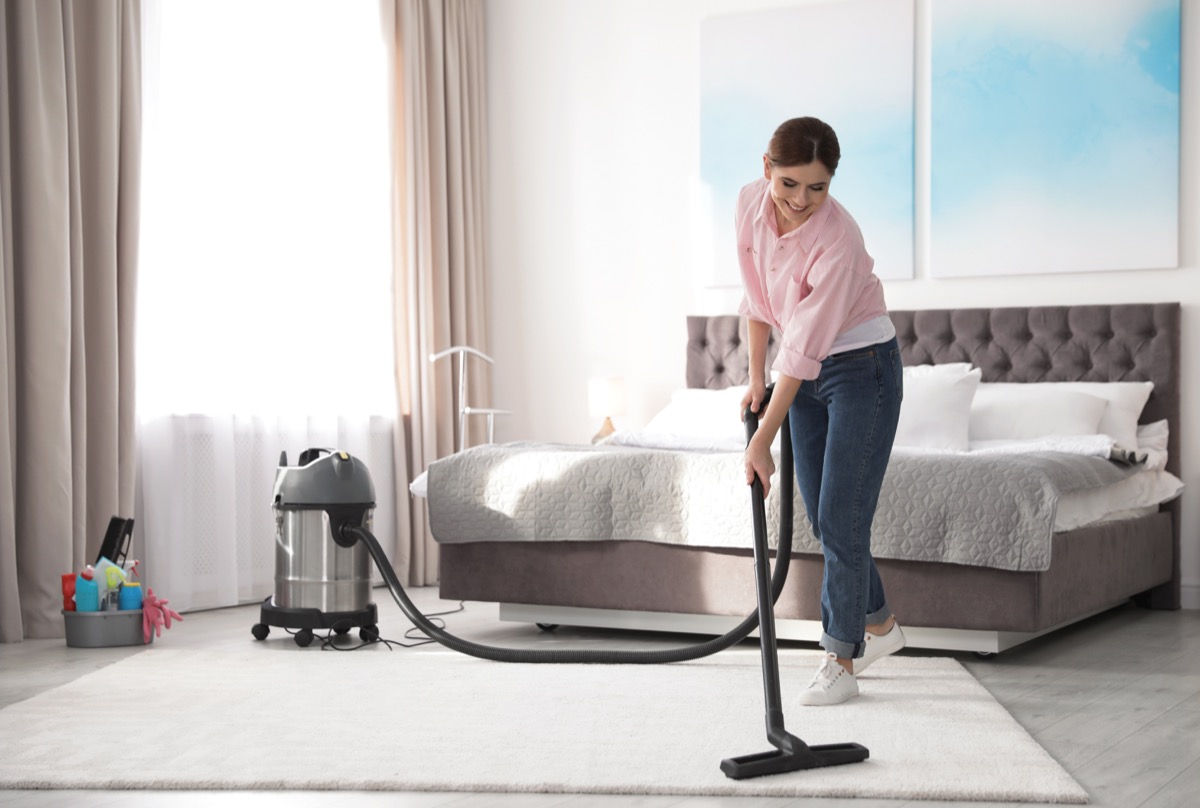
To prevent your vacuum from becoming clogged with dust and dander, you'll want to clean its filter every three to six months—assuming you don't have pets, allergies, or asthma. If you do, you may need to clean or replace these filters monthly, Morris says, noting that it's important to check the manufacturer's instructions for the correct cleaning method as some filters are not washable and need to be replaced.
However, Morris has his own tried and true method, which should work for most vacuums. "To clean vacuum filters, first turn off and unplug the vacuum cleaner before removing the filter, shaking off any loose debris or dirt," he says. "You can also wash the filter under running water, using a mild detergent to help loosen up any stubborn dirt, letting it dry completely before putting it back in the vacuum."
4
Range hood filters
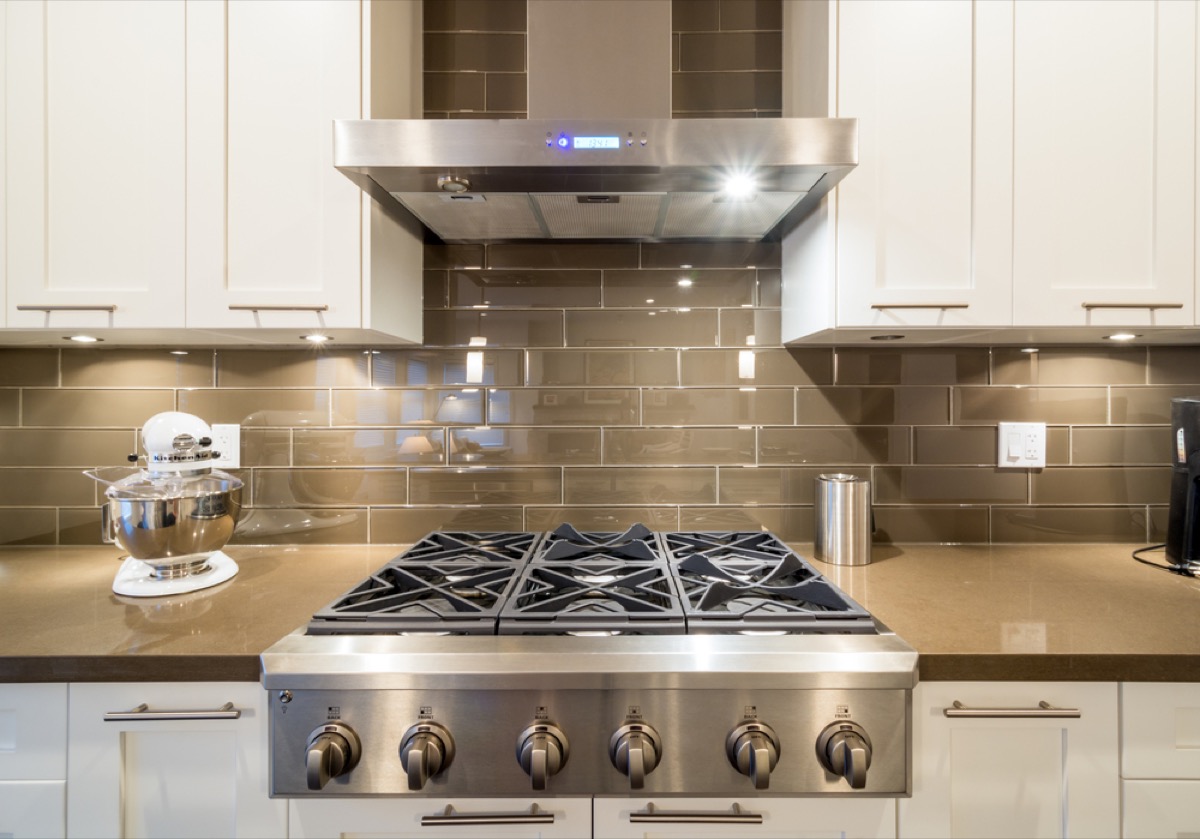
The range hood filter above your stove captures grease and odors during cooking—and chances are you're not cleaning it nearly often enough, Toner says.
"It's important to clean or replace this filter regularly to maintain optimal performance. Some range hood filters are dishwasher-safe, while others require hand washing," she notes.
To clean your range hood filter, you can remove it and soak it for at least 10 minutes in a solution of water and liquid dish soap, according to Better Homes and Gardens. Scrub it with a brush until you've successfully removed all of the caked-on grease. Then simply pat it dry with a dish towel or let it air dry before returning it to its place.
5
Pool Filters
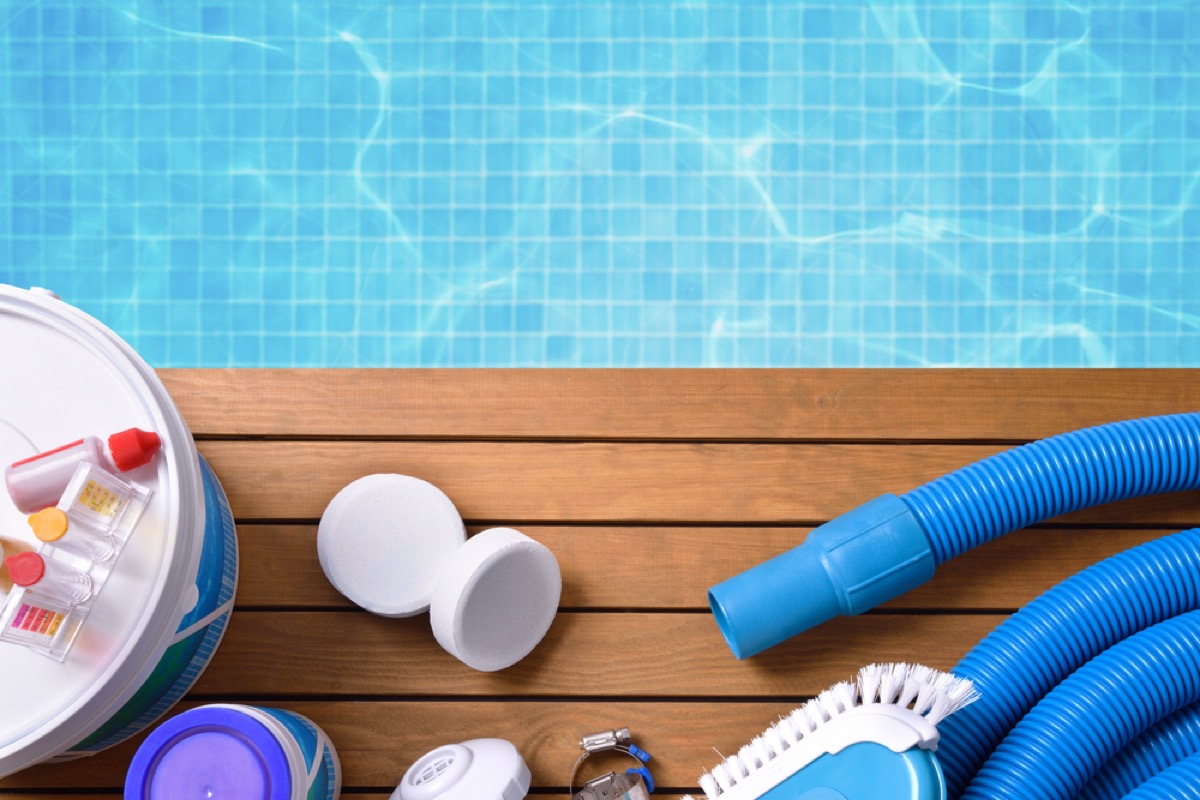
Neglecting to clean your pool filter often enough can cause bacterial growth, cloudy water, and an uneven distribution of pool chemicals.
"If you have a pool, regularly cleaning or backwashing the pool filter is essential for maintaining water clarity," says Toner. "Consult the pool filter's manufacturer or a pool maintenance professional for specific guidance."
Most experts say your pool filter needs to be cleaned every four to six months, though Toner notes that "cleaning frequency will depend on factors such as pool usage, water quality, and the type of filter used."
Testing your pool water regularly can help you determine whether your pool filter is due for a cleaning or replacement.
For more cleaning advice sent directly to your inbox, sign up for our daily newsletter.
6
Humidifier Filters
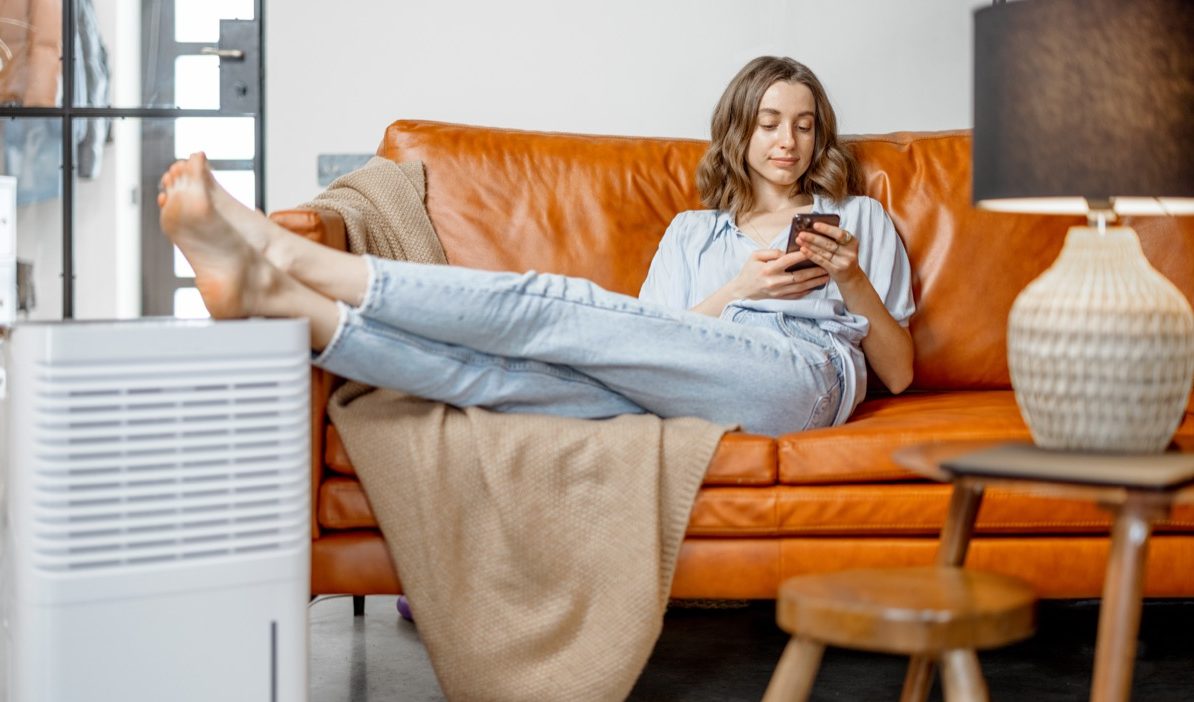
If you own a humidifier, chances are you're behind on cleaning its filter, says Toner. She recommends that you clean or replace them every one to three months, depending on usage and water quality.
"Humidifier filters help maintain optimal humidity levels and prevent the growth of mold," she explains. If you don't clean your filter, mold spores and bacteria can accumulate and become re-released into the air.
The good news? Experts say you can clean your humidifier filter in four simple steps: Remove the filter, soak it in a 50/50 mixture of water and vinegar for 15 to 20 minutes, rinse the filter in hot water, and allow it to air dry completely before reinserting it into your humidifier.
7
Dryer filters
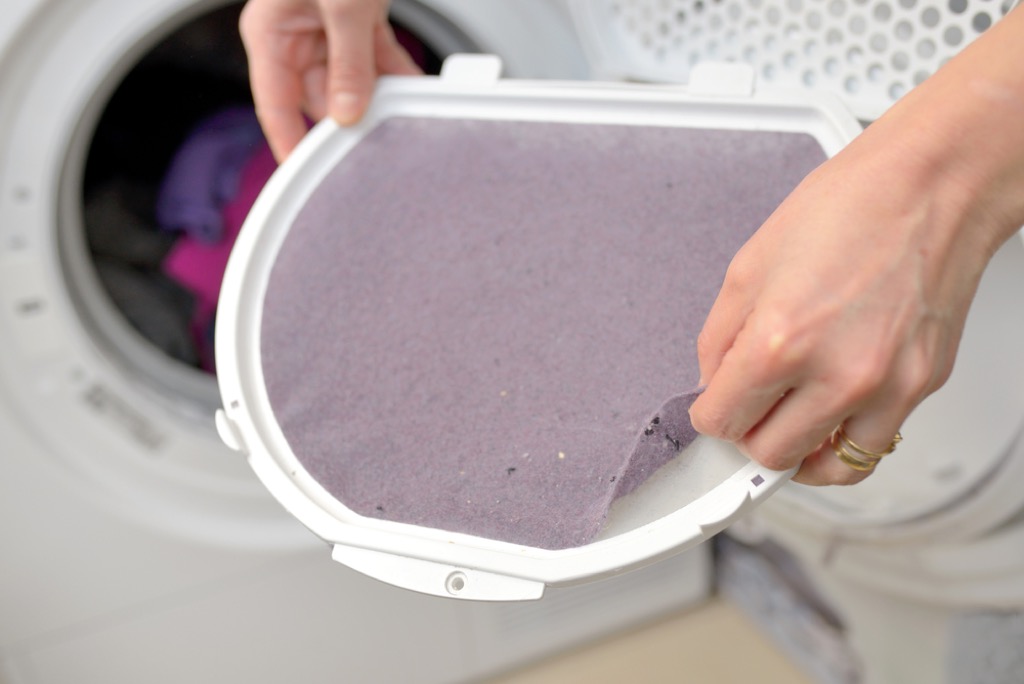
Finally, you should always make a point of cleaning your dryer filters regularly, says Ray Brosnan, a maintenance expert for Brosnan Property Solution.
"The filter collects lint and other debris from your clothes, which can accumulate over time and clog the filter," he tells Best Life. "A clogged filter can lead to reduced airflow, which can cause the dryer to overheat and potentially start a fire. Cleaning the filter after every load will help keep your dryer running smoothly and reduce the risk of fire."
According to the experts at Whirlpool, there's a little more to it than simply removing the lint from your dryer's lint trap—though this is an important first step. You'll also want to vacuum inside the lint trap opening, remove any built-up residue on the lint trap, and clean your dryer vent and duct for optimal results.

